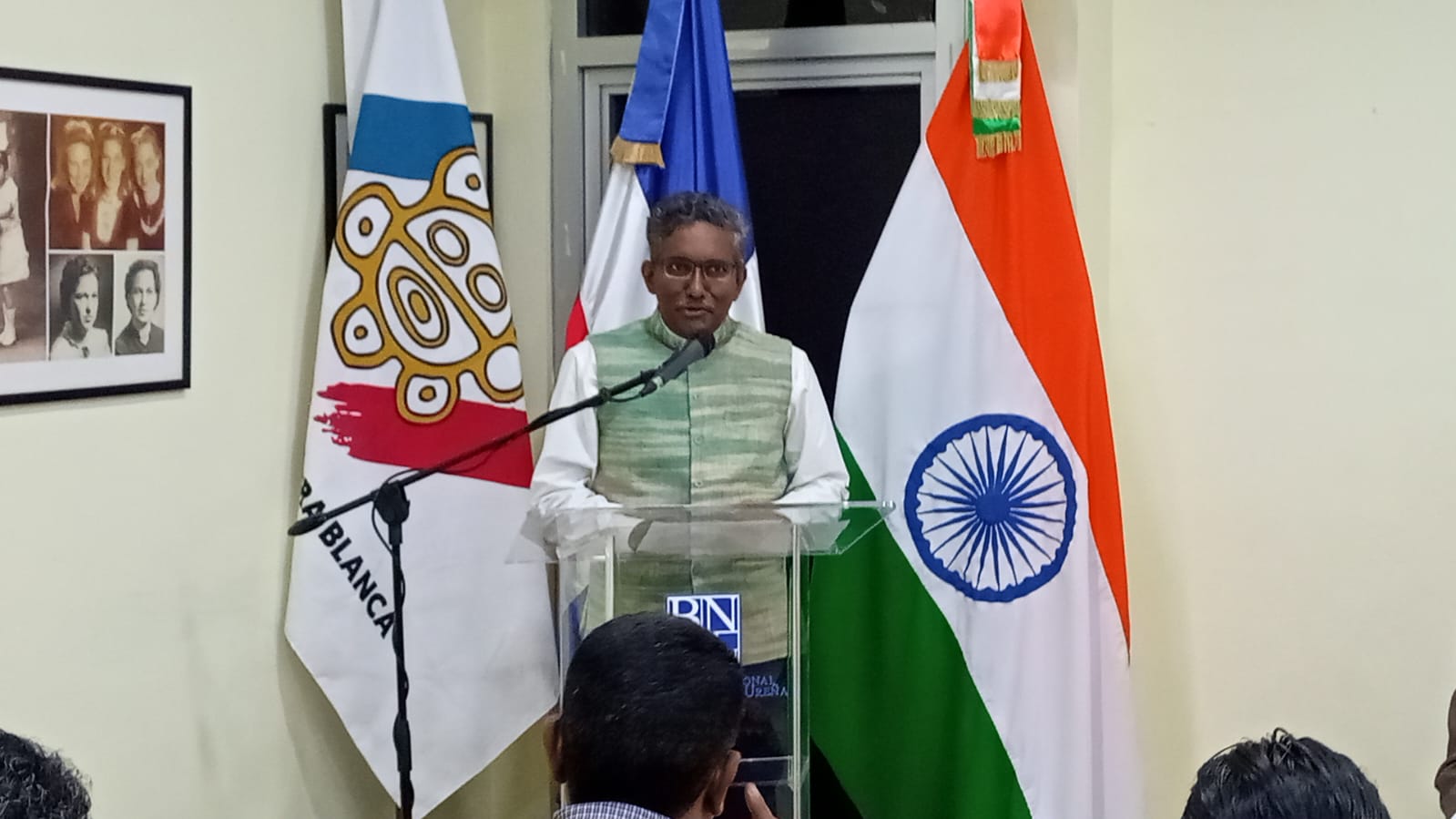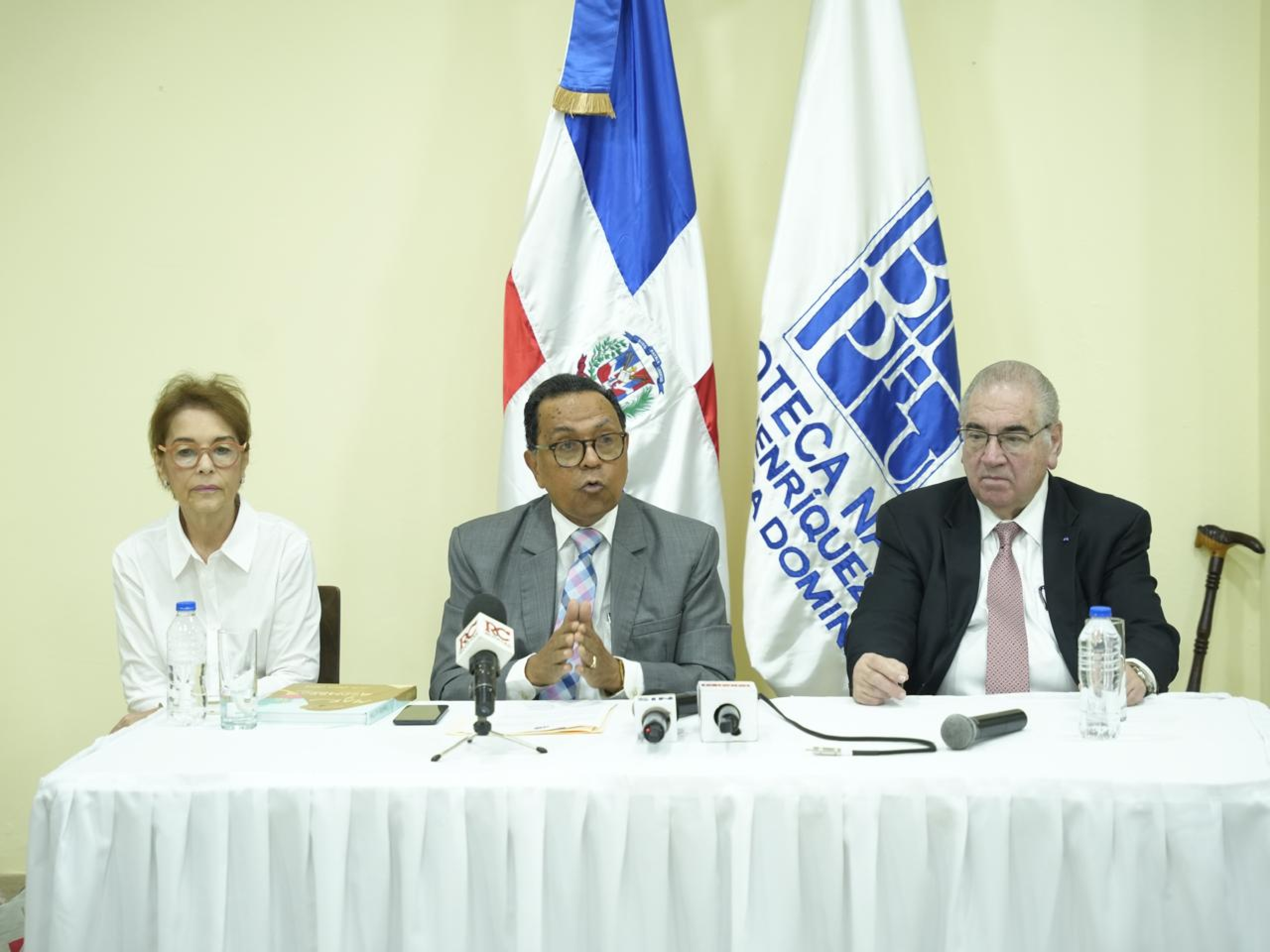IDEC highlights advances in educational activities tailored according to the Government priorities
 | IDEC highlights advances in educational activities tailored according to the Government priorities The Dominican Initiative for Quality in Education (IDEC – Iniciativa Dominicana por una Educación de Calidad) highlighted its various advances in educational activities that were implemented during the first half of 2013, according to the research priorities set for this area by the government headed by President Danilo Medina. Among these are: building classrooms, redesigning the curriculum, and modernizing and decentralizing education and the enforcing offices of the National Institute for Student Welfare (INABIE – Instituto Nacional de Bienestar Estudiantil). … emphasized that the redesign of the Dominican educational curriculum advanced substantially during the first half of 2013 in the scientific, humanistic, artistic and technological disciplines. The advances are part of the conclusions contained in the Follow-Up Report and Monitoring Control Panel for the first half of 2013 in the area of ??education, prepared by the IDEC. The report was presented to the participating sectors from that agency and to society at large during a ceremony that was held in the Dr. Leonel Rodríguez Rib Auditorium, at the APEC University. Engineer Víctor Sánchez, Deputy Minister of Planning of the Ministry of Education (MINERD), on behalf of the Minister of Education, Mr. Carlos Amarante Baret, brought up the need to ensure that the results of the efforts made by IDEC have an impact on learning, on the everyday life, and on the quality of life of our children and adolescents, as well as on their families and their communities. He stressed that the current Administration is promoting an agreement by which the entire national, political, business, academic and social leadership will contribute to the joint efforts to overcome the structural barriers and challenges that limit the economic and social development, based on a common vision for the future. “This coordinated effort aims at strengthening the common advancement towards an improved education, capable of promoting the skills that are necessary for the individual, social and economic development of all the domestic sectors,” Sánchez explained. The Deputy Minister of Planning reflected that the IDEC can be considered a first step to achieving the Great National Covenant for Education Reform (Gran Pacto Nacional por la Reforma Educativa) that was announced by President Danilo Medina in his inaugural address on August 16, 2012. To this end, he recently issued Decree 228-13 by which he convened the Economic and Social Council (CES) to organize, in coordination with the relevant government agencies, a space for discussion and implementation of the National Covenant for Education Reform. The report The document includes two detailed reports of the follow-up and monitoring of each of the priority actions, one sorted by the IDEC work tables, and the other by the dimensions in which the consolidated document of results was structured. The follow-up and monitoring reports will be prepared every six months. The IDEC report was headed by the Ministry of Education (MINERD). Its findings, which were presented by Alfonso Asía, Advisor to MINERD, emphasized that the redesign of the Dominican educational curriculum advanced substantially during the first half of 2013 in the scientific, humanistic, artistic and technological disciplines. The document declares that the curriculum redesign contemplates extending the early childhood education from zero to six years, divided in two cycles, and transforming the elementary school level to primary education level, which will last six years and will be grouped in two cycles of three grades each. Meanwhile, secondary education is being extended from four to six years, with a first common cycle of three years, and a second cycle, also of three years, with three areas of concentration: Academic, Technical-Professional and the Arts. With regard to the teaching career, the report states that there has been progress in achieving some of the targets that were set out in the preparatory stage of the certification and in the definition of the new professional accreditation program. Other major advances relate to the adoption of measures to ensure compliance with the school calendar and class schedule, and the promotion of the policy for early childhood care, with the design of the program “Quisqueya Empieza Contigo (Quisqueya Begins With You).” In addition, the tender for the first 100 centers for comprehensive child care, which are expected to be ready in February, 2014. Regarding the improvement of elementary education, the emphasis is on continuing the policy of supporting learning in the early grades, through partner institutions. With regard to secondary education, there is mention of an increase in coverage, particularly in the regard to Technical-Professional Education and the Arts. The report also underscores the progress attained in developing a framework for the establishment of policies and strategies for the educational and pedagogical practices for the extended school day, and the flexible model for Elementary Education for Youths and Adult Persons (EBPJA – Educación Básica de Personas Jóvenes y Adultas), which is designed to provide continuity to the newly literate persons. It also refers to the efforts in the construction, expansion and remodeling of school buildings to increase the educational offer and, above all, to meet the demands of the expanded Extended School Day Program (PJE – Programa de Jornada Extendida). Other improvements that have been highlighted are the policy for supporting students in vulnerable situations, which has been undertaken by the National Institute for Student Welfare (INABIE), and the progress in the tender process and in contracting suppliers for the School Feeding Program (PAE – Programa de Alimentación Escolar). The report praises the first steps that have been taken to implement the Management, Monitoring and Quality Assurance System for the PAE, and the progress that has been made in the contracts related to the schedule for the delivery of supplies and uniforms. In the area of modernization, decentralization and institutional restructuring of MINERD, the report states that it has improved the reorganization of the regional and district offices, as well as the schools, in accordance with the administrative division of the State, the approval of the Organic Rules of the institution, and the new administrative structure. Another significant progress is in the transfer of resources to the regional and district boards, and to the schools. However, the report says that it is necessary to advance in the legalization of the boards of the recently opened schools and in the opening of bank accounts so that they are able to receive the transfers directly and not through the district office. The report recommends to continue strengthening the management system and the development of human resources in areas such as the inclusion in the system of selection by competitive examination of some managerial levels of the regional and districts offices, technical posts and other teaching and non-teaching positions that have not been covered so far. In addition, the Rector of the APEC University, Radhamés Mejía, offered the welcoming remarks at the event, and Andrea Galina, World Bank representative, spoke on behalf of the international organizations that support the IDEC. The following persons also were part of the head table: MINERD’s Deputy Minister of Technical and Pedagogical Services, Mr. Luis Matos; Ernesto Vilalta, Advisor to the President; Ricardo Bardía, Representative of the European Union; Jim Wright of the U.S. Agency for International Development (USAID); Iraima Capriles, Executive Director of CES; and Laura Peña of the National Association of Young Entrepreneurs (ANJE – Asociación Nacional de Jóvenes Empresarios). About the IDEC The IDEC has been designed as a space for dialogue and consultation between the government, civil society, international organizations and the private sector, to identify priority actions in the education sector to meet the projected goals for 2016 and to formulate a four-year plan to monitor the progress in the implementation of those priority actions.
|

Related News
-

(Versión en español) XI Feria Internacional del Libro y la Cultura Neiba 2024
-

(Versión en español) Cultura y BNPHU otorgan el Premio Biblioteca Nacional de Literatura Infantil 2024 a la escritora Brunilda Contreras
-

(Versión en español) Cultura celebra Día Internacional del Libro con apertura de biblioteca, donación, intercambio y venta de libros
-

(Versión en español) El agroturismo diversifica la oferta turística dominicana
-

Dominicanos en Grandes Ligas
Las ultimas noticias/novedades de lo que acontece con los Dominicanos en las Grandes Ligas durante toda la temporada 2019.


